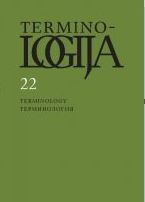Simono Daukanto ir Lauryno Ivinskio lenkų–lietuvių kalbų žodynų lietuviškos terminologinės medicinos leksikos vedyba
The derivation of Lithuanian terminological lexis of medicine from Simonas Daukantas ’ and Laurynas Ivinskis’ Polish–Lithuanian dictionaries
Author(s): Palmira ZemlevičiūtėSubject(s): Theoretical Linguistics, Applied Linguistics, Lexis, Western Slavic Languages, Baltic Languages, Health and medicine and law
Published by: Lietuvių Kalbos Institutas
Keywords: medicine; vocabulary;
Summary/Abstract: The paper deals with bilingual Polish–Lithuanian dictionaries compiled by the famous figures of Lithuanian science, culture and education from the first half of 19th century S. Daukantas (1793–1864) and L. Ivinskis (1810–1881). It focuses on terminological lexis of Lithuanian origin (derivatives) naming various concepts of medicine. Attempts are made to identify ways of word-formation of derivatives and derivational categories, to discuss derivational types of the latter, to establish what groups of medical concepts are named using derivatives, to identify their relation with the living language and the language used in writings, to identify possible neologisms of the authors of dictionaries and to evaluate the survival of derivatives in modern standard Lithuanian and in the terminology of medicine. Both lexicographers are viewed as men of merit in Lithuanian medical terminology. Their input is important not only because of the medical lexis (the majority of which is of Lithuanian origin) included in their dictionaries, but also because of their attempts to find Lithuanian equivalents of Polish words in the living language and to create words for naming medical concepts. 46% of Lithuanian terminological lexis of medicine presented in both dictionaries is derived words - suffix, prefix and ending derivatives.
Journal: Terminologija
- Issue Year: 2015
- Issue No: 22
- Page Range: 160-205
- Page Count: 36
- Language: Lithuanian

